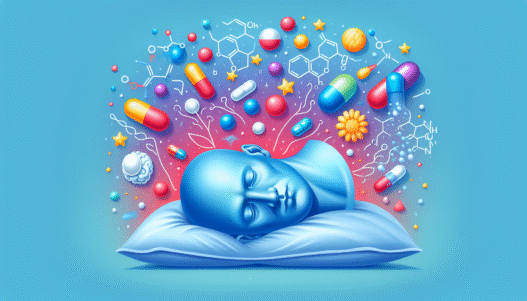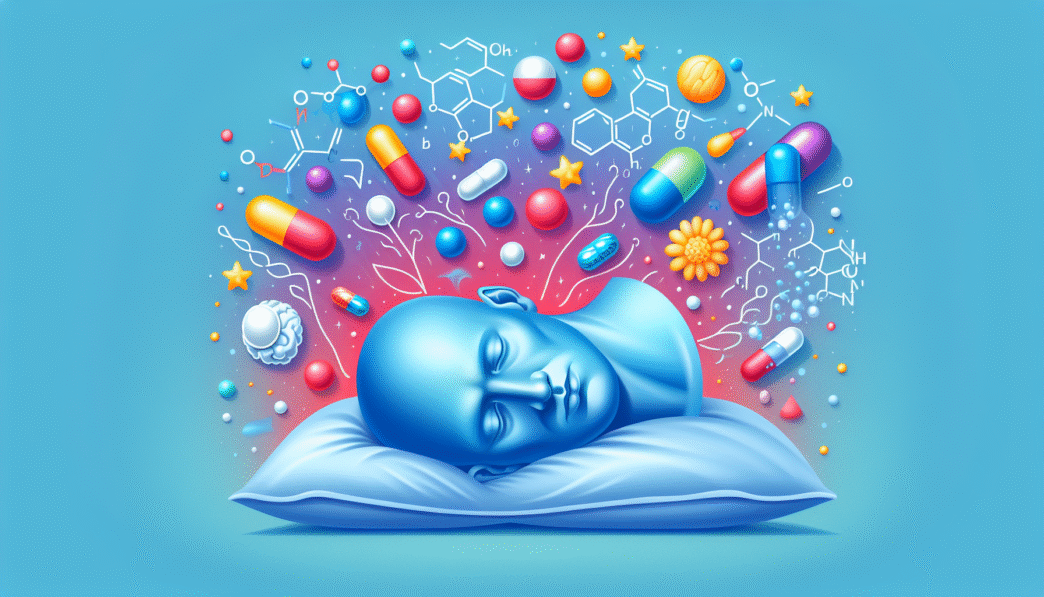NAC and Health Benefits
N-Acetyl Cysteine (NAC) has gained attention not only for its detoxification properties but also for its various health benefits, particularly concerning respiratory conditions and mental health.
Respiratory Conditions
NAC is known to alleviate symptoms related to several respiratory conditions. It acts as an antioxidant and expectorant, making it beneficial for managing chronic obstructive pulmonary disease (COPD), chronic bronchitis, cystic fibrosis, asthma, and pulmonary fibrosis. It also aids in relieving nasal and sinus congestion.
Recent studies have shown promising results regarding NAC’s impact on COPD. One notable trial demonstrated that high-dose NAC treatment reduced the rate of acute exacerbations of COPD by 22% among patients, highlighting its potential as an early intervention method to prevent disease progression.
Furthermore, NAC’s ability to reduce inflammation in the airways can lead to improved lung function. As respiratory health is closely tied to sleep quality, better respiratory conditions may indirectly enhance sleep, suggesting an intriguing connection between NAC and sleep patterns, even if its direct effects on sleep remain to be fully explored.
| Respiratory Condition | NAC Benefits |
|---|---|
| COPD | Reduces exacerbations by 22% |
| Chronic Bronchitis | Alleviates symptoms |
| Asthma | Acts as an expectorant |
| Cystic Fibrosis | Improves mucus clearance |
Mental Health Benefits
NAC has also been studied for its potential mental health benefits, particularly in relation to anxiety and mood improvement. Research indicates that NAC may play a role in reducing anxiety levels, providing a potential supplemental option for individuals dealing with anxiety-related disorders.
Moreover, NAC’s antioxidant properties contribute to its neuroprotective effects, making it a subject of interest for treating various neurological conditions. While the link between NAC and sleep is still being investigated, the compound’s influence on oxidative stress and inflammation could also have implications for overall mental well-being and, by extension, sleep quality.
For more information on the diverse uses of NAC, see our article on what is nac n-acetyl cysteine used for?. The exploration of NAC’s benefits continues to evolve, making it a valuable consideration for those focused on health and longevity.
NAC and Blood Sugar Regulation
N-Acetyl Cysteine (NAC) plays a vital role in managing blood sugar levels, specifically regarding insulin resistance and inflammation reduction. This is particularly important for individuals looking to enhance their overall health and longevity.
Insulin Resistance
NAC has shown potential in improving blood sugar regulation by tackling insulin resistance. When insulin resistance occurs, the body struggles to respond to insulin properly, leading to fluctuating blood sugar levels that may disrupt metabolic health. Studies indicate that NAC helps stabilize blood sugar levels in individuals with this condition.
The mechanism behind this involves NAC’s ability to decrease inflammation in fat cells, which is often associated with insulin resistance. By reducing this inflammation, NAC can help improve insulin sensitivity, subsequently benefiting blood sugar regulation. Additionally, this stabilization may have positive implications for sleep patterns, as blood sugar management is closely related to sleep quality.
| Effect | Mechanism |
|---|---|
| Blood Sugar Stabilization | Decreases inflammation in fat cells |
| Insulin Sensitivity | Improves response to insulin |
Inflammation Reduction
The anti-inflammatory properties of NAC contribute significantly to its ability to regulate blood sugar levels. Chronic inflammation is linked to various health issues, including impaired insulin signaling and diabetic complications. By reducing inflammatory markers, NAC can create a more favorable environment for maintaining healthy blood sugar levels.
NAC achieves this by increasing the synthesis of glutathione, a powerful antioxidant that mitigates oxidative stress and inflammation within the body. By managing inflammation, NAC not only plays a crucial role in blood sugar regulation but may also help alleviate symptoms of conditions like anxiety and neurodegenerative diseases.
| Inflammatory Markers | Result |
|---|---|
| Decrease in cytokines | Improved blood sugar regulation |
| Enhanced glutathione levels | Reduced oxidative stress |
NAC’s multifaceted role in blood sugar regulation is an appealing aspect for those concerned about overall health, detoxification, and longevity. Individuals interested in exploring more about NAC and its benefits for various health topics can visit our article on what is nac n-acetyl cysteine used for? for further insights.
NAC and Brain Health
N-Acetyl Cysteine (NAC) is increasingly recognized for its potential neuroprotective properties. It plays a significant role in brain health, particularly through glutathione replenishment and its implications for neurodegenerative conditions.
Glutathione Replenishment
One of NAC’s primary functions is its ability to replenish the antioxidant glutathione. Glutathione is crucial for protecting cells from oxidative stress, which is a significant factor in various neurological disorders. NAC serves as a precursor to glutathione, effectively boosting its levels in the brain (Healthline). Increased glutathione levels can lead to improved cognitive function and overall brain health by neutralizing harmful free radicals and reducing inflammation.
The table below summarizes the benefits of glutathione replenishment through NAC:
| Benefit | Explanation |
|---|---|
| Antioxidant Activity | Reduces oxidative stress in brain cells |
| Neuroprotection | Protects against neurodegenerative diseases |
| Cognitive Improvement | Potentially enhances memory and focus |
Neurodegenerative Conditions
The neuroprotective effects of NAC extend to specific neurodegenerative conditions, such as Alzheimer’s and Parkinson’s diseases. Research suggests that NAC may benefit these conditions by regulating glutamate levels in the brain, which plays a vital role in neural communication.
NAC has been investigated for its effectiveness in treating various neurological and psychiatric disorders, primarily focusing on its effects on cognitive improvement and emotional regulation. It has shown promise in mitigating symptoms associated with cognitive decline, addiction, chronic pain, and mood disorders.
Here is a brief overview of the conditions NAC has shown potential in treating:
| Neurodegenerative Condition | Potential Benefits |
|---|---|
| Alzheimer’s Disease | May slow cognitive decline and promote mental clarity |
| Parkinson’s Disease | Might improve motor function and quality of life |
For those concerned about brain health and seeking ways to support cognitive function through supplementation, NAC presents an intriguing option. Individuals should consult with healthcare providers to determine if NAC is appropriate for their specific health needs. Additionally, for information on overall benefits of NAC, see our article on what is nac n-acetyl cysteine used for?.
NAC for Liver and Kidney Health
The use of N-Acetyl Cysteine (NAC) has garnered attention for its potential health benefits, particularly concerning liver and kidney function. This section will outline how NAC supports detoxification and enhances the performance of these vital organs.
Detoxification Support
NAC supplements are known to aid in the detoxification process of the body, which is especially beneficial for the liver and kidneys. NAC plays a crucial role in the breakdown of drugs and toxins, potentially leading to better function in individuals with compromised liver or kidney health. While more research is necessary to confirm these effects, early studies suggest that NAC can facilitate quicker breakdown and removal of harmful substances from the body (WebMD).
To illustrate the detoxification potential of NAC, the following table highlights its effectiveness in various scenarios:
| Condition/Benefit | Result/Efficacy |
|---|---|
| Acetaminophen poisoning | Preferred antidote, accelerates recovery |
| Toxicity from drugs | Aids in faster breakdown and elimination |
| General detoxification | Supports liver and kidney health |
Liver and Kidney Function
The impact of NAC on liver and kidney function is particularly noteworthy. It has been recognized for its ability to improve functions in these organs, especially in cases where they may be impacted by disease. NAC enhances the regeneration of liver cells, which is crucial for recovery after liver injury, such as that induced by acetaminophen overdose. This regenerative process relies on NAC’s ability to replenish glutathione, a vital antioxidant in cellular protection.
For the kidneys, NAC may help in supporting their filtration capabilities and overall health. Although research is still evolving, NAC is believed to enhance the recovery of kidney function by combating oxidative stress and inflammation.
For those seeking to understand more about the intersection of NAC and liver health, check out our article on is nac good for your liver?.
In summary, NAC is a potent ally in enhancing liver and kidney function, as it offers detoxification support and promotes healing in these essential organs.
NAC and Sleep
N-Acetyl Cysteine (NAC) has garnered attention for its potential effects on sleep patterns. Understanding how NAC influences sleep can assist individuals looking to enhance their overall well-being and manage sleep-related issues.
Impact on Sleep Quality
Research indicates that NAC can significantly affect sleep quality. It works as a precursor to glutathione, enhancing cellular antioxidant capacity. Studies have shown that administering NAC at times when sleep drive is naturally heightened can accelerate the onset of sleep and alter non-rapid eye movement sleep (NREMS) patterns. Notably, it reduces NREMS delta power and slows beta electroencephalographic (EEG) activities during wakefulness.
| Effect of NAC on Sleep Quality | Description |
|---|---|
| Accelerated onset of sleep | NAC facilitates quicker entry into sleep states. |
| Reduced NREMS delta power | NAC influences the deep sleep quality. |
| Altered EEG activity | NAC affects brain wave patterns related to wakefulness. |
Sleep Disorders
NAC’s interaction with sleep extends to its potential connection to sleep disorders. The compound can help manage sleep accumulation during imposed wakefulness. In females, NAC appears to promote quicker accumulation of drowsiness and increased sleep needs, while in males, it tends to suppress these accumulations. Overall, NAC has been shown to nullify sex differences regarding sleep need and drowsiness during natural sleep periods, reflecting its broader potential in sleep regulation.
| NAC Effects on Sleep Disorders | Description |
|---|---|
| Drowsiness and sleep need | In females, NAC speeds up the need for sleep, while in males, it reduces this need. |
| Impact on sleep accumulation | NAC influences the overall sleep pressure build-up across genders. |
| Regulation during spontaneous sleep | NAC promotes balance in sleep dynamics, especially during lighter phases of sleep. |
NAC represents a promising avenue for those considering ways to improve their sleep quality and manage sleep disorders effectively. Further research could elucidate its full impact on sleep and overall health. For more information on NAC and its various uses, visit what is nac n-acetyl cysteine used for?.
NAC Interactions and Side Effects
Understanding the potential interactions and side effects of N-Acetyl Cysteine (NAC) is essential for individuals considering its use for health benefits. This section will discuss how NAC might interact with other medications and the possible side effects one may encounter while using it.
Drug Interactions
NAC may decrease the effectiveness of certain medications, including:
-
Chloroquine: This drug is used to treat malaria. NAC might reduce its effectiveness against malaria symptoms.
-
Activated Charcoal: When taken together with NAC, the efficacy of activated charcoal — often used to treat poisoning — may decrease. This interaction can affect how well activated charcoal works in preventing the absorption of toxins (WebMD).
-
Anticoagulants/Antiplatelet drugs: NAC might slow blood clotting. When combined with other medications that also affect clotting, such as warfarin, there is an increased risk of bruising and bleeding.
| Drug Category | Possible Interaction |
|---|---|
| Chloroquine | Reduced effectiveness against malaria |
| Activated Charcoal | Diminished efficacy in preventing poison absorption |
| Anticoagulants | Increased risk of bruising and bleeding |
Potential Side Effects
Taking NAC may lead to several side effects, primarily if combined with other treatments. Possible side effects include:
-
Interactions with Nitroglycerin: NAC can enhance the effects of nitroglycerin, a medication used for chest pain, which may increase the risk of side effects such as headaches, dizziness, and lightheadedness.
-
Hypotension with Antihypertensive Drugs: If NAC is taken alongside medications for high blood pressure, it may lead to excessively low blood pressure, requiring close monitoring (WebMD).
| Side Effect Category | Possible Side Effects |
|---|---|
| Nitroglycerin | Headaches, dizziness, lightheadedness |
| Antihypertensive drugs | Low blood pressure |
Awareness of these interactions and side effects empowers individuals concerned about liver health and detoxification, guiding their decisions regarding NAC supplementation. For more information on NAC, consider exploring our articles such as what is NAC N-acetyl cysteine used for? or what are the negative side effects of NAC?.




















